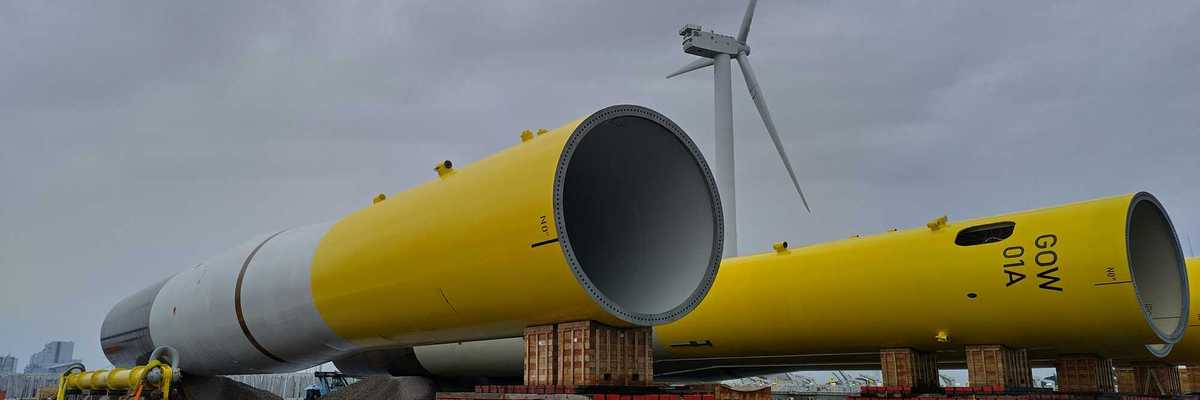food web contamination
Tanker sinks in Manila Bay, sparking fears of major oil spill
A Philippine oil tanker sank in Manila Bay, potentially causing a major spill, after being battered by waves, prompting the coast guard to rescue 16 of 17 crew members.
In short:
- The Terra Nova, carrying 1.4 million liters of industrial fuel, sank after battling huge waves.
- Aerial surveys show a 2.3-mile oil spill near the sinking site, but it might be engine fuel, not cargo oil.
- The coast guard is preparing for potential shoreline contamination in Manila and considering siphoning the fuel.
Key quote:
“There’s a big danger that Manila would be affected, its shorelines, if the fuel leaks because this happened within Manila Bay. It’s part of the contingency we’re preparing for. The effect on the marine environment would not be good.”
— Rear Admiral Armando Balilo, Coast Guard spokesperson
Why this matters:
This isn't just an interruption in the local maritime traffic; it's a potential environmental nightmare. An oil spill in Manila Bay could devastate marine life, send fishing communities into crisis and spawn health risks that could ripple far beyond the bay itself. Read more: Numerous miles-long oil spills have been reported on one of Pittsburgh’s iconic three rivers.
Bald eagles return to the southern Great Lakes after near extinction
The bald eagle population in southern Ontario has made a remarkable recovery after near extinction due to DDT, symbolizing hope for both wildlife and human health.
In short:
- The pesticide DDT nearly wiped out bald eagles in North America, causing their numbers to plummet in the mid-20th century.
- Decades of conservation efforts have led to a significant recovery, with Ontario declaring bald eagles no longer at risk in May 2023.
- Despite the success, bald eagles now face new threats from climate change and emerging contaminants.
Key quote:
"If we’re not paying attention to what we’re doing, if we’re not careful about what we’re putting into the environment, we’re just going to repeat the story over and over again."
— Jody Allair, Birds Canada
Why this matters:
The resurgence of bald eagles is a testament to the effectiveness of environmental regulations and conservation efforts. It speaks to a broader issue of how human activities impact both wildlife and human health, emphasizing the need for continued vigilance and action. Read more: Pesticide DDT linked to increased breast cancer risk generations after exposure.
Plastic pollution treaty talks yield mixed results for Arctic Indigenous communities
Despite global talks aiming to tackle plastic pollution, Arctic Indigenous communities return home to worsening plastic impacts without commitments to reduce plastic production.
In short:
- The recent global treaty talks in Ottawa lacked firm commitments to curb plastic production, leaving Arctic Indigenous communities disheartened.
- Plastics and petrochemicals collect in the Arctic, causing health and environmental damage while climate change exacerbates these issues.
- Oil industries and some nations emphasize recycling over production cuts, which experts argue won't fully address the problem.
Key quote:
“The Biden administration is moving forward with a massive oil and gas project that is a climate disaster waiting to happen while refusing to listen to the voices of my constituents and community.”
— Rosemary Ahtuangaruak, Iñupiaq scholar and leader from the Native village of Nuiqsut.
Why this matters:
The Arctic, melting faster than other regions, is a "sink" for plastic pollution from around the globe, drastically affecting the health and culture of Indigenous people. Read more: Ending toxic threats to Alaska from plastics and petrochemicals.
Reimagining plastic usage to combat pollution
In an interview with CBC, environmental scientist Pete Myers advocates for a significant reduction in plastic production and emphasizes the urgent need to address plastic pollution's health impacts.
In short:
- Pete Myers, chief scientist at Environmental Health Sciences, highlights the toxic health impacts of plastics and stresses the need for urgent reductions in their production.
- Myers criticizes the notion of recycling as a solution, suggesting it distracts from more effective measures like limiting virgin plastic production while Nestlé and other corporations call for collaborative global rules with less emphasis on production caps.
- Canadian Environment Minister Steven Guilbeault acknowledges the need to eliminate the most harmful plastics but expresses hesitation about imposing a cap on all plastic production.
Key quote:
“We have the ability to use the science we have today, which we didn't have when plastic was invented. We know why some plastics are safe and some aren't. And let's use that information, that chemical information, to design safer materials.”
— Pete Myers, chief scientist at Environmental Health Sciences
Why this matters:
Plastic pollution has penetrated every corner of our planet, threatening ecosystems and human health. Read more: Exposure to chemicals in plastics linked to cancer diagnoses.
Battle to save Spain’s beaches and marine life as row intensifies over ‘plastic monster’ unleashed after container ship spill
The nurdle hunters: is combing UK beaches for tiny bits of plastic a waste of time?
More than 170 tons of plastic particles are floating in the world’s oceans – and millions of them wash up on our shores.









